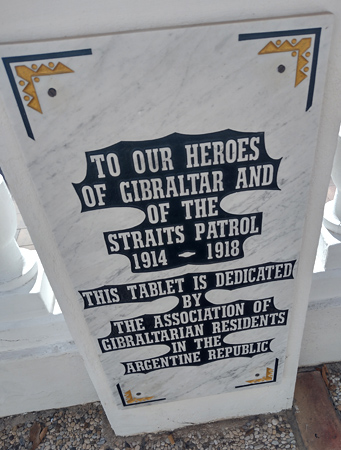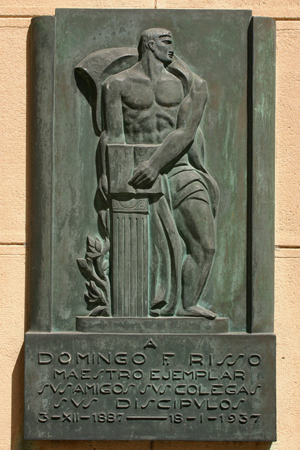
Documenting Recoleta Cemetery in Buenos Aires since 2007
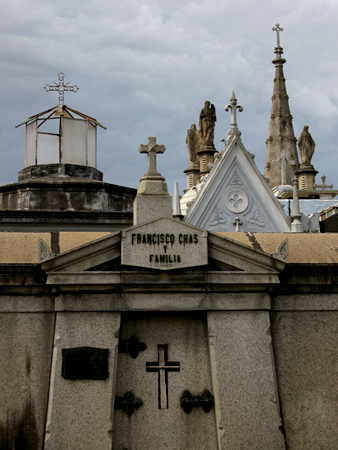
The Chas family came to Argentina from a small town in Galicia much earlier than most immigrants. In fact, Francisco Chas y Pombo married the sister of independence hero Manuel Belgrano. Successful with a small supply store in the Plaza de Mayo marketplace, their son—Francisco Chas Belgrano—made the family fortune grow & earned a place in Buenos Aires high society.
The marriage of Francisco Chas Belgrano was fruitful… to say the least. His eight children became further integrated with the well-to-do; one daughter even married Ernesto Bunge, a major architect in Buenos Aires. Perhaps it was these upper class connections that led Chas to invest in real estate. By the time of his death in 1890, Chas owned several houses in Buenos Aires as well as land in several provinces. The family vault was built in Recoleta Cemetery for the death of Francisco.
Two years later, much of the Chas family property was sold by his children. Among the items for sale was the summer house in Belgrano where Chas & his wife passed away. Purchased by the mother of the Anchorena family, she gave the house as a wedding gift to daughter Josefina when she married Enrique Larreta:
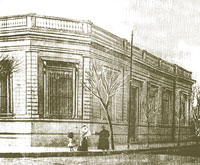
The newlyweds hired architect Martín Noel to remodel the house in 1916, converting it into a Neocolonial masterpiece. It now functions as the Museo Municipal de Arte Español Enrique Larreta across the street from La Redonda:
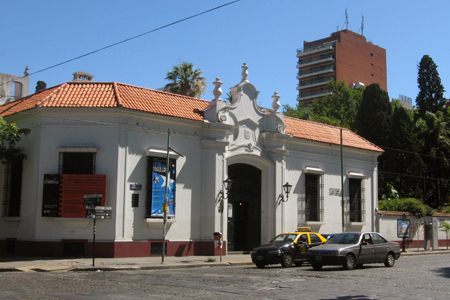
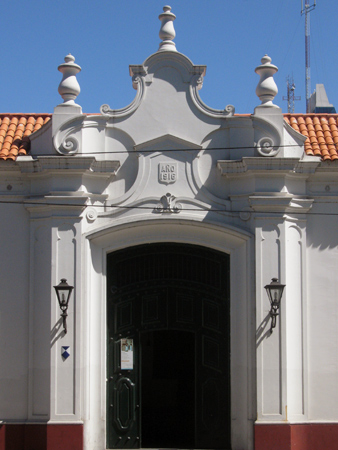
However the most permanent reminder of the Chas family in Buenos Aires is a barrio named after them: Parque Chas. In the 1920s, one of the third-generation sons decided to urbanize some of the family’s land holdings. Originally developed as workers’ housing, the original homes were built as British-style chalets. A few still exist today. But it’s the street plan that most people recognize… concentric circles. Designed to make the area more commercially desirable (much like Barrio Parque in Palermo), the confusing layout is now the bane of taxi drivers. Below are comparative aerial photographs from the 1940s & 2000:
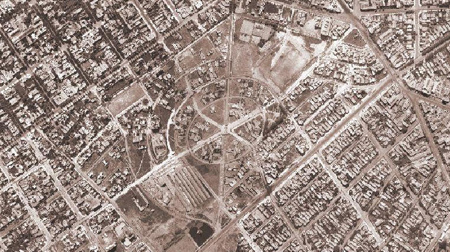
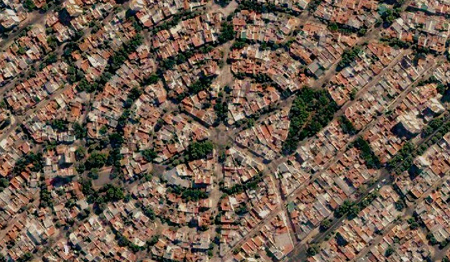
More information about the Chas family can be found on the neighborhood’s website.
18 CommentsClassic to funerary architecture, a truncated column symbolizes the idea of a life cut short or unfinished. Not just for young family members who have passed away, it is also used for anyone who had many tasks left to complete. In Recoleta Cemetery broken columns appear as the main sculpture, as a decorative element on plaques, as a crown for domes or in the guise of a massive message as in the Peralta Ramos family vault (last photo):
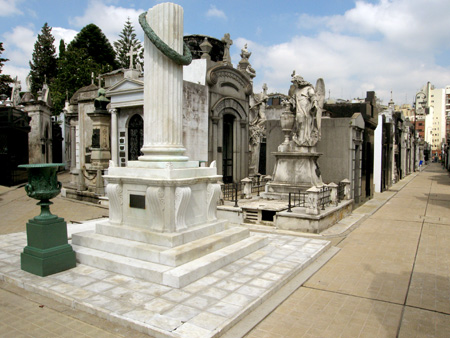
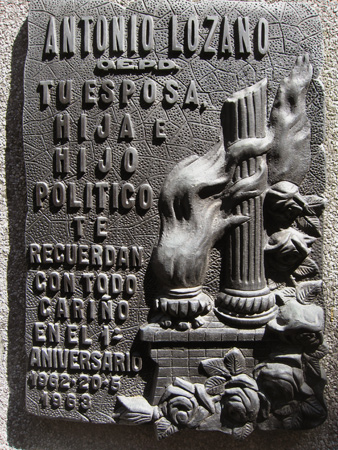
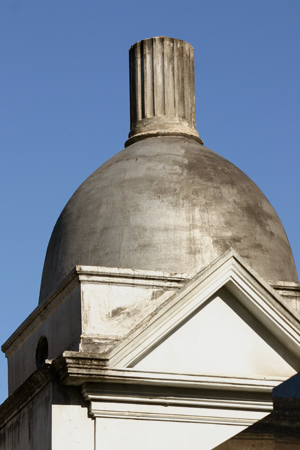
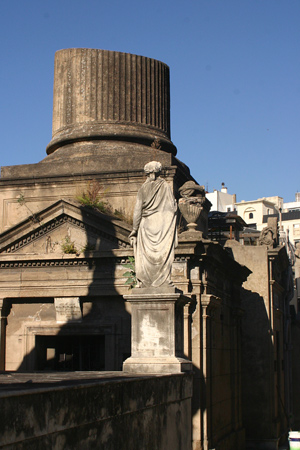
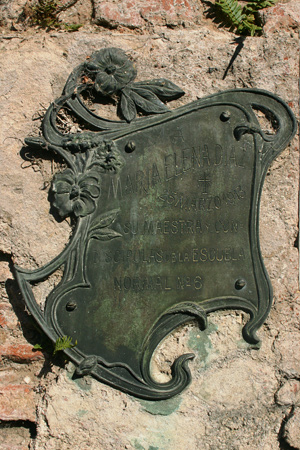
One of the nicest Art Nouveau plaques in the entire cemetery… hands down.
Like Art Nouveau? Learn about the architects of the era, their individual styles & what makes Art Nouveau in Buenos Aires so unique with a 33-page guide from our sister site, Endless Mile.
2 Comments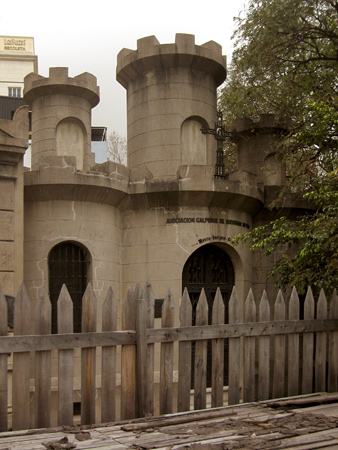
There’s a castle in the cemetery, but most people never see it. Stuck in a corner down a dead-end aisle, the organization whose members are be buried here often go unnoticed.
The Calpense Association for Mutual Assistance was one of many groups formed by immigrants from a specific region in Europe to assist new arrivals from their hometown. These organizations founded hospitals (important when immigrants could speak little Spanish) & gave women an outlet away from the home. So who were the Calpenses?
Phoenicians trading in the Mediterranean 3,000 years ago christened a landmark mountain “Calpe.” Called Gibraltar today, the British Commonwealth has controlled “the Rock” since the early 1700s. The mausoleum’s castle design originated from a coat of arms granted by Queen Isabel —the same one who funded the voyage of Columbus— since the area belonged to at that time. That original coat of arms was incorporated into the modern Gibraltar flag, then reproduced in Recoleta Cemetery. The vault is a perfect copy:
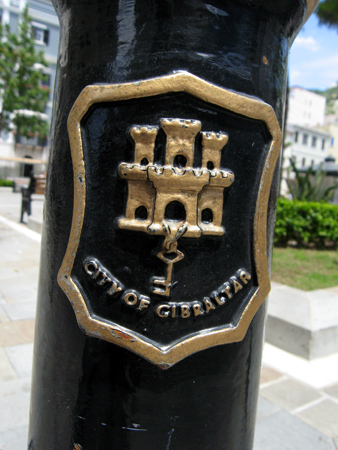
The hanging key on the coat of arms also forms part of the vault… look down at the doorstep to find it:
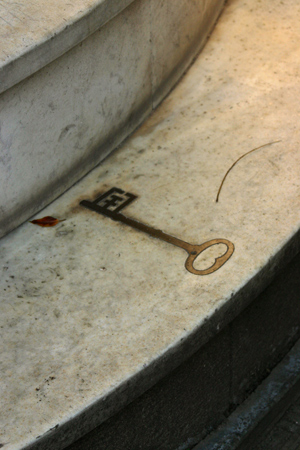
The interior is wide & spacious, & the stained glass on the back wall is worth a peek inside:
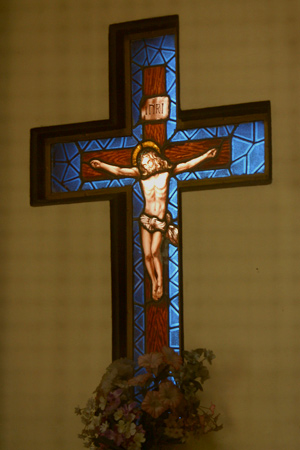
Update (20 Dec 2023): During a recent trip to Gibraltar, I found the following plaque near a World War I monument by King’s Bastion. Ties to immigrants ran deep in the early 20th century.
